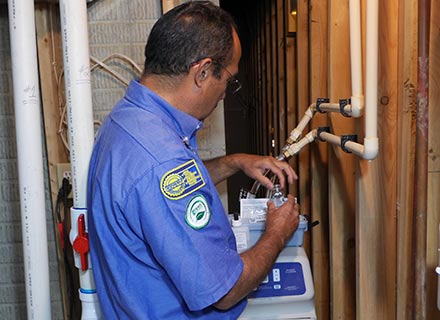DIY Wet Wipes (Why Flushing Regular Wipes Will Clog Your Drains)
Flushable wipes have become very much en vogue when it comes to tidying up in the bathroom. Not only do they get you super clean, but they're also easy to get rid of. Just flush it down the toilet when you're done, and it's gone for good. But is it really gone? In reality, wipes labeled as flushable can end up causing a huge stink. Not only can they be very expensive over time, but they can also cost you in toilet repair costs.
Wet cloth wipes, which include products like baby wipes, adult wipes, and moist towelettes, have been around for a long time. However, adult wipes most frequently get flushed down the loo, and their popularity has soared over the past few years.
Despite the fact that they're ridiculously convenient, the trend towards flushable wipes has unintentionally created a need for drain cleaning services all over the globe.
How Disposable Wipes are Made
To understand just why flushable wipes can potentially cause such problems in plumbing systems, it helps to know how exactly they're made. Disposable wipes are made from a material called non-woven cloth. This sturdy material is also used to make dryer sheets.
Non-woven cloth is made by machines that use air to shape and compress fibers into material. As you might have observed, this material is much sturdier than paper. Since they don't break down in water like toilet tissue does, any sturdy material that you flush down the toilet has the potential to get caught in the pipes.
When used in excess, flushable wipes almost always cause problems. They back up pipes so that eventually you have to have a plumber come out and do a pipe cleaning.
While some wipes are safer to flush than others, wipe manufacturers aren't exactly bent on making the distinction clear. Since flushable wipes have become so hugely popular, it's not unheard of for a brand to quietly let consumers assume that their product is indeed flushable.
Any "Do Not Flush" warnings can be easy to miss since they're usually in fine print and possibly hidden beneath a flap somewhere. Other brands are even content with claiming that their wipes are flushable, even when they can potentially cause toilet repair issues. Though being vague with claims sounds unethical on the manufacturer's part, it isn't exactly illegal. At least, not yet.
Flushable Wipe Problems on a Large Scale
Flushable wipes not only cause drain cleaning problems in the home, but they also cause problems in municipal sewer systems. Environmental experts in New York estimate that disposable wipes have caused a gigantic $18 million in damages and repair costs over the past five years.
Cities everywhere have felt the pain of disposable wipe damage to sewer systems. The conflicts have even resulted in lawsuits and legislative action. New York's city council has made moves to force wipe makers to clearly label their products as flushable or non-flushable. More recently, the city of Wyoming, Minnesota had sued wipe manufacturers for damages caused to their water treatment plant. The state of Minnesota is also pushing for non-flushable wipe makers to clearly mark their products with "Do Not Flush" instructions.
Make Your Own Flushable Wipes
Now that you know how much of a problem flushable wipes can cause to home pipes and also sewer systems, it's practical to want a more sensible solution to your toilet needs. If toilet paper just doesn't cut it for you, but you don't want the problems that commercial adult wipes can cause, then try making these simple flushable wipes for yourself.
You will also save money, since making these wipes costs much less than their store-bought counterparts.
Just follow these easy steps:
- Take a rectangular Tupperware container and stack rectangular sheets of paper towels inside.
- Create a solution of one part liquid baby wash and three parts water. You can also use liquid castile soap.
- Pour the soap solution over the wipes until they're saturated. Cover with the Tupperware lid.
- And there you have it. Less expensive, less pipe-hazardous wipes to use in the bathroom.
- As a side note, although wet paper towels are less likely to clog up your pipes than cloth wipes, they still don't break down in water the way that toilet tissue does. For that reason, only use as many as you need to, and avoid flushing too many of them at once.
Flushable wipes are a very convenient way to get yourself clean. Just remember that the next wipe you flush could be contributing to your next pipe cleaning bill. Using this disposable wipe alternative can save you from pipe problems, and also spare your city's municipal sewer system from damage.
If you need assistance with drain cleaning in Franklin, IN, contact Kellie Plumbing, Inc at (317) 738-2707.



